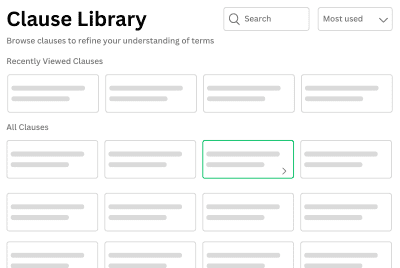Building Trust: Secure, compliant LegalBook solutions

Key Challenges
Tenancy agreements particularly are normally characterized by long reviewing and bargaining periods that affect the project time frame. According to Deloitte, legal departments in sector experience a lag of as much as 30% overall on contract end since they are often forced to undertake a plethora of manual examinations and sequenced bargains. Such delays have implications for BOTH; the timing of some of these projects and their financial returns.
The constantly changing regulations pose problems in the areas of obeying zoning laws, relationship issues with the tenants and environmental compliance. It is evident from KPMG’s Real Estate Compliance Report that non-compliance leads to legal claim, operational interferences, and loss of monies.
More than half of all the real estate contracts contain provisions which would involve change or re-negotiation as a result of progressive project requirements and contributions from different stakeholders. McKinsey also notes that there are changes which are not recorded when making these changes and that legal risks may increase due to such adversities hence impact the project and stakeholders in general.
Real estate business requires a lot of owing diligence to determine property ownership, zoning and leases. Due diligence can be partly or fully unfinished or delayed, costing additional 4-40% of time and exposing many transactions to increased liability risks.
Solutions By LegalBook
Legalbook’s Auto Redlining generates new efficiencies by automatically marking up changes, highlight differences between clauses, and map out contracting party responsibilities. This innovative tool cuts contract cycle time by up to 35/ allowing real estate companies to complete their transactions faster and manage their project delivery schedules effectively.
Legal compliance is important across all sectors especially the real estate, and this is why Legalbook’s Risk Report will help teams. It tracks convergence with zoning laws, environmental laws and other legal policies and it determines key risks and compliance gaps. As such, tackling these challenges in advance helps the companies to avoid penalties, besides facilitating project delivery.
One of the ways Legalbook has made contract alterations manageable is through its Obligations Mapping and Metadata Extraction. Here are features which assist legal departments to track every single change in the contract and ensure that they do not approve any deviations. This helps to minimize those risks associated with change in a contractual agreement, as well as increases the level of transparency of all the parties, thus improving the efficiency of interaction
Due Diligence and Contract Summary tools of Legalbook make due diligence easy with extensive metadata extractors and concise summaries. It can help different legal teams perform such evaluations in a much shorter time, reducing the potential risks that come with property acquisition, leasing and compliance with rules and regulation. This makes them better prepared and their decisions are well rooted for a particular venture.

Request A Demo
See it yourself how AI can
transform your
contract management.

Read Our
Stay updated with the latest trends, tips, and insights in business analytics. Explore our curated
articles designed to empower your data-driven journey..







